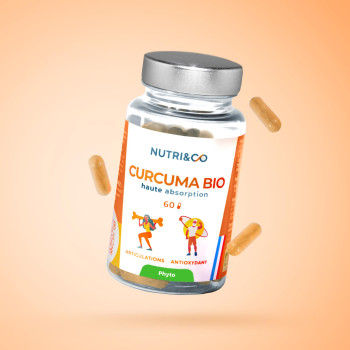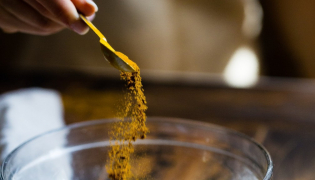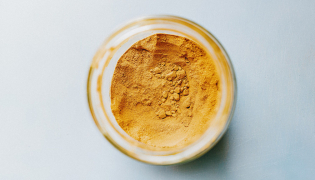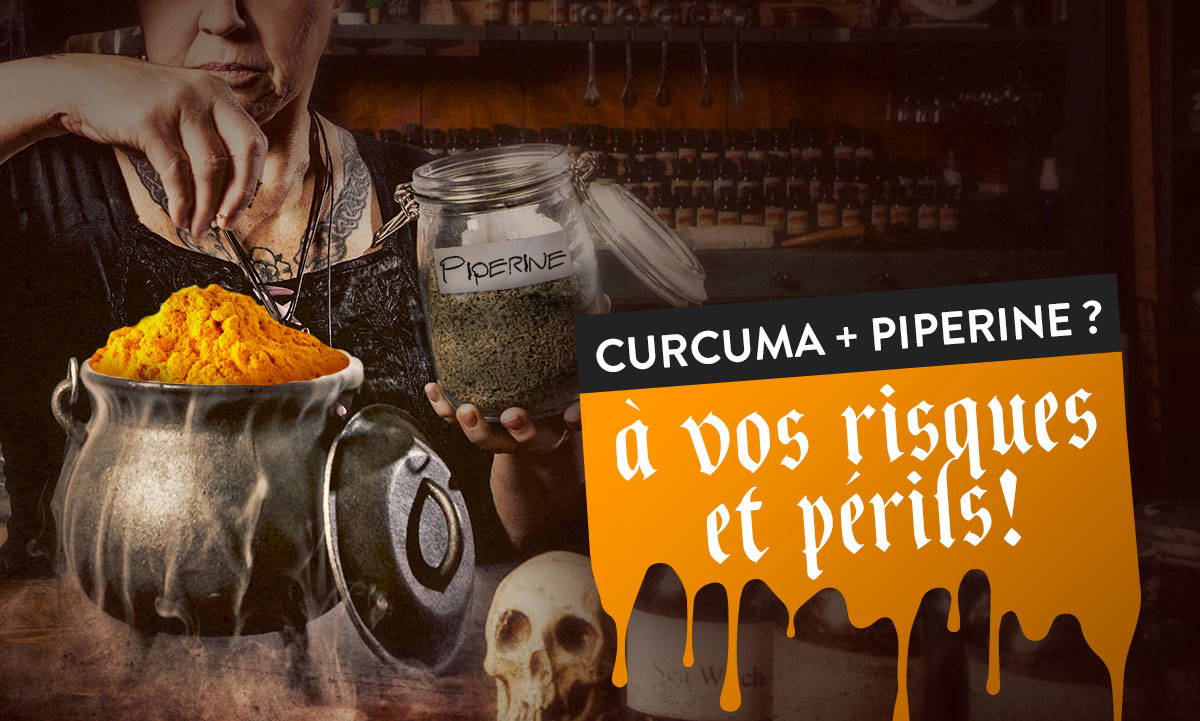
WHAT TO REMEMBER :
- The active ingredient of turmeric, curcumin, is too little absorbed.
- Black pepper is often associated with it to increase its assimilation.
- Recently, science has demonstrated the uselessness of such a formula, and even its dangerousness.
With more than 15,000 studies to its credit, turmeric is the undisputed star of the Nutra botanical pantheon. But you know that. (otherwise around here) its flagship phyto-pigment, curcumin, is not easily absorbed. This is where black pepper comes into play, since with its active compound, piperine, they pride themselves on increasing the assimilation of the precious pigment. But despite her grandmother's recipe style, is this formula really effective ? Not so sure... Between the organic label and the latest scientific advances, it's time to deconstruct one of the Nutra's great tricks.
A question of organic label
To make curcumin assimilable, there are two main families of vehicles: cofactors and vectors. These pompous terms intended to flatter the ego of scientists hide concepts that are ultimately simple :
In short, we can compare co-factors to a locomotive and vectors to a rocket ! But there is a problem: curcumin vectorization involves additives not recognized in the biological reference frame, and now Mike the marketer is not happy !
« Actually, it's not complicated, Mike, with the organic label you reflect the quality, man! You don't have to worry about it anymore with a complicated sales pitch and a curcumin patent that no one understands! Are you AB ? Yes ! So you're good! See, it's actually easy, Mike. »

- Co-factors are when two ingredients are combined to create a synergy. In our case: curcumin and piperine (the active ingredient of black pepper) are coupled to increase the absorption of the former.
- Vectors are molecules grafted directly onto the active ingredient to significantly increase its absorption. We are dealing here with molecular biochemistry, long and expensive processes that most often lead to patent applications.
In the end, many brands are ready to reduce the effectiveness of a formula if it allows them to seek organic certification and remain "natural". No wonder when you know that the precious AB label remains for many neophytes THE guarantee of quality par excellence ! However, these two letters do not guarantee anything other than the absence of the use of synthetic products. No pesticides so, okay, that's cool, but no vectorized curcumin either, well... expensive paid. But Mike doesn't care, he doesn't sell you an effective formula, he sells you organic. He has therefore chosen to combine his curcumin with the most famous cofactor: piperine.

The popularity of black pepper is such that it can be found among the main keywords related to Turmeric on Google. It is therefore understandable that many brands want to surf on an already well established referencing rather than bring an innovative formulation unknown to the general public and therefore to Google.
... More than efficiency and benefits
The question we all ask ourselves is how this association has established itself as the top of the mind of turmeric formulas ?
It is to Professor Shoba that piperine owes its fame. In 1998, his team published clinical results in which up to 20 times higher absorption was found when a curcumin preparation (2000mg) included piperine (20mg) (2). It didn't take much to get the mixture into all the organic pharmacies and stores, but there are two major problems that Shoba's team hadn't anticipated :
- First, and as if by chance, no similar results could be reproduced later. However, it is not uncommon for the turmeric plus piperine recipe to be used as a basis for comparison to assess the relevance of vectorized curcumins. These include the work of Al-Karawi (3), which synthesizes the results of six clinical studies and shows only six times higher absorption.
- Secondly, and because the price per kilo of organic piperine is higher than 300€, it is rare to find products that respect the curcumin/piperine ratio (100:1) that have demonstrated efficacy in Shoba's study... And here, beware of charlatans and their misleading labels ! We don't want to read the amount of black pepper, but the amount of piperine!
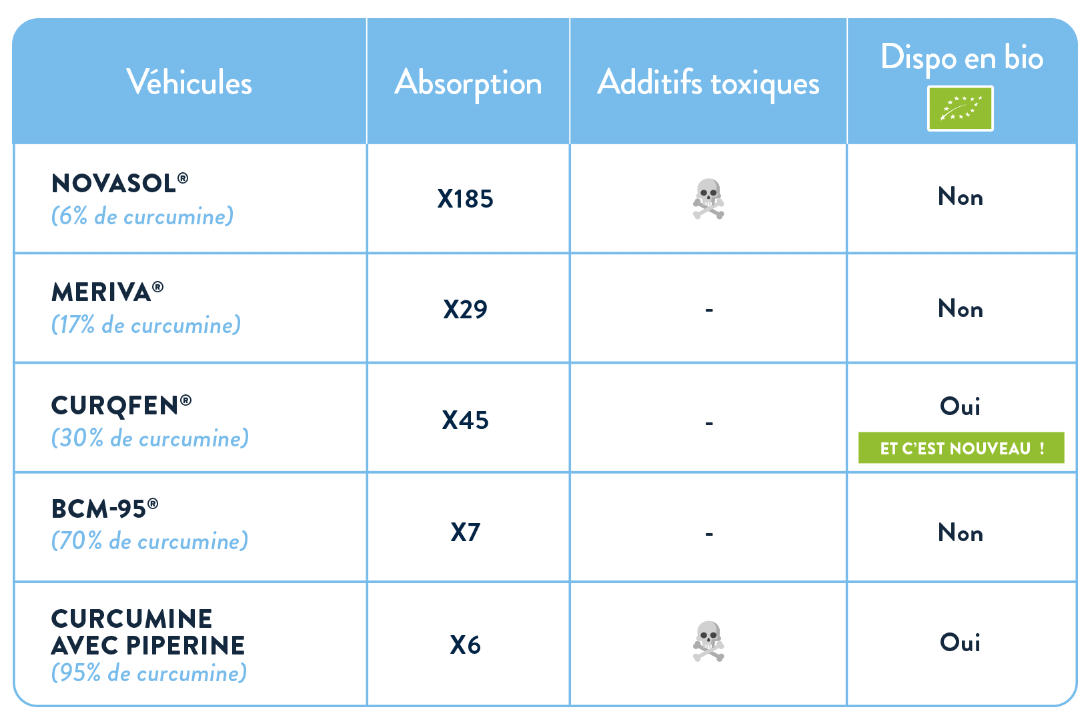
The Trade Mark "Bioperine" is the latest marketing discovery to make us believe that piperine is a patent as effective as vectorized curcumins.
Curcuma et pipérine, quels sont les risques ?
« Yes, but it's natural, so it can't hurt them ! »
Not so sure Mike, not so sure... And indeed in 2012, two new clinical studies came to throw a stone in the puddle.
- Volak's (4) first of all, which shows that curcumin absorbed with the help of piperine is not completely digested and therefore not usable by the cells. He concludes that black pepper extract actually increases intestinal permeability.
- Ringman's (5) then, whose results show an increased risk of developing autoimmune diseases, just like that...
The opinion of our team
Limited effectiveness, excess value granted to the organic label and a host of indications of potential dangerousness... we can easily put this formula in the Nutra's scam closet. Choose vectorized curcumins instead whose efficiency is much higher, and for purists of the organic label, our formula offers the first vectorized AND organic patent: the CurQfen !
(1) Lao CD, Ruffin MT 4th, Normolle D, Heath DD, Murray SI, Bailey JM, Boggs ME, Crowell J, Rock CL, Brenner DE. Dose escalation of a curcuminoid formulation. BMC Complement Altern Med. 2006 M. ar 17;6:10.
(2) Shoba G, Joy D, Joseph T, Majeed M, Rajendran R, Srinivas PS. Influence of piperine on the pharmacokinetics of curcumin in animals and human volunteers. Planta Med. 1998 May;64(4):353-6.
(3) Al-Karawi D, Al Mamoori DA, Tayyar Y. The Role of Curcumin Administration in Patients with Major Depressive Disorder: Mini Meta-Analysis of Clinical Trials. Phytother Res. 2016 Feb;30(2):175-83
(4) Volak LP, Hanley MJ, Masse G, Hazarika S, Harmatz JS, Badmaev V, Majeed M, Greenblatt DJ, Court MH. Effect of a herbal extract containing curcumin and piperine on midazolam, flurbiprofen and paracetamol (acetaminophen) pharmacokinetics in healthy volunteers. Br J Clin Pharmacol. 2013 Feb;75(2):450-62
(5) Ringman JM, Frautschy SA, Teng E, Begum AN, Bardens J, Beigi M, Gylys KH, Badmaev V, Heath DD, Apostolova LG, Porter V, Vanek Z, Marshall GA, Hellemann G, Sugar C, Masterman DL, Montine TJ, Cummings JL, Cole GM. Oral curcumin for Alzheimer’s disease: tolerability and efficacy in a 24-week randomized, double blind, placebo-controlled study. Alzheimers Res Ther. 2012 Oct 29;4(5):43.

